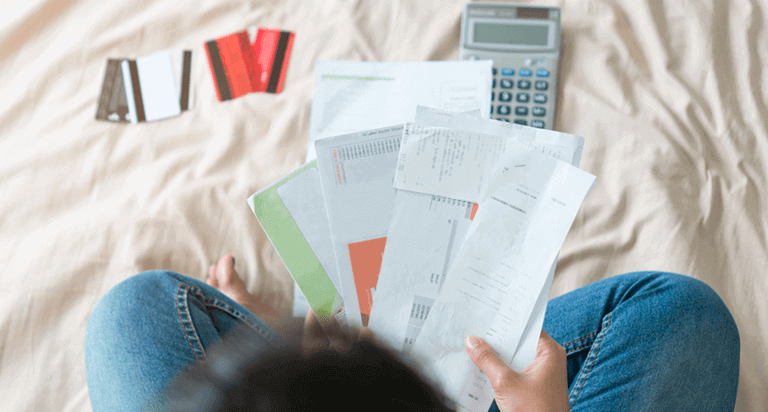How to Get Your Overdraft Fees Refunded


Highlights:
- Overdraft fees occur when there isn't enough money in an account to cover a transaction or withdrawal. Banks typically charge between $10 and $40 per overdraft transaction.
- In some cases, banks will refund the overdraft fees if you request it, but it's not guaranteed.
- Avoiding overdraft fees typically requires a combination of being aware of your current account balance, signing up for low balance alerts through your bank, and choosing banks that don't charge overdraft fees.
Nobody plans to spend more than they have in their bank account, but it can happen. Sometimes, an unexpected charge may go through. Other times, the issue could be a delayed deposit. While most banks and credit unions will allow the transaction even when the account doesn't have funds to cover the withdrawal, it comes at a cost.
Overdraft fees can add up quickly, especially if several smaller transactions process at the same time. However, it's possible to contact your bank and ask for a refund of overdraft fees.
What is an overdraft fee?
An overdraft fee is a charge a bank applies to your account when it goes into the negative. Simply put, it means that you spent more money than you had in the bank. No matter the reason, the overdraft comes from your account balance going negative.
How much is an overdraft fee?
Banks may have different policies around overdraft fees, so it's important to understand your bank's guidelines. In general, overdraft fees can cost an average of $35 per charge.
Getting your overdraft fees refunded
If you've been hit with an overdraft fee, you may be able to get a refund by reaching out to your bank. In many cases, banks value keeping good relationships with their customers. Contacting your bank's customer service is the main method of getting a refund. Make sure you're prepared to provide as much information as possible, including your account details and information about the charge that led to the overdraft fee.
If the customer service representative is unable to assist you, consider escalating the issue by respectfully requesting to speak with a supervisor.
If a refund is approved, keep an eye on your checking account balance. If you don't see the refund appear within three business days, reach out to customer service again.
You should know that while many banks may be happy to assist you with an overdraft fee refund, they are not obligated to do so. Simply put, a refund on overdraft fees is not guaranteed.
How to avoid overdraft fees
You can avoid overdraft fees by making sure you have enough funds in your checking account to cover upcoming charges. Of course, life happens. If you've dealt with overdraft fees before, here are some strategies that can help you avoid overdraft fees in the future:
- Set up low balance notifications. Many banks allow you to enroll in notifications when your bank account's balance hits a certain threshold. This can let you know it's time to monitor your spending more closely.
- Check your balance before making a purchase. Make it a habit to look at your bank account before charging your debit card. This helps you avoid accidentally overcharging if a payment is processed since the last time you checked your account.
- Disable overdrafts on your debit card. You can opt-out of overdraft or decline overdraft coverage so charges will be declined when you don't have enough to cover an expense.
- Use a bank without overdraft fees. Some banks, like Capital One®, Citibank® and Ally Bank® don't charge overdraft fees. However, they may have other requirements for your account to utilize free overdrafts.
How does overdraft protection work?
Rather than declining the purchase, some banks allow their customers to opt into overdraft protection. This allows them to charge up to a certain limit beyond their balance to their account. This is an agreement with your bank to avoid rejected transactions. It's sometimes referred to as cash-reserve checking, and while you'll skip the overdraft fee, you may be charged other costs.
Overdraft protection works by connecting your checking account to a line of credit or another checking or savings account. With this protection, there's an agreement between you and your bank that if you attempt to charge more than you have available, it will be approved up to a preset amount (usually between $250 and $5,000). As the transaction goes through, funds transfer from the linked account to the one used for the purchase. Some banks may allow this for free, but others will charge transfer fees and potentially interest if it's tied to a line of credit.
Banks that let you overdraft immediately
Major banks may allow you to overdraft immediately, but they'll usually put limits on it. For example, Capital One's 360 Checking® account allows for no-fee overdrafts on its checking accounts. However, banks have the ability to decline charges that would put your account in a negative balance.
Other major banks that allow overdrafts include:
- Bank of America®
- SoFi®
- Chase Bank®
- Wells Fargo®
Does overdrafting affect your credit scores?
Overdrafting your bank account does not typically affect your credit scores. Checking accounts are not included in your credit reports from the three nationwide credit agencies. However, if your account is delinquent and turned over to collections it can over time negatively affect your credit scores.
The bottom line
If you need an overdraft fee refund, you can request one from your bank. However, while they may be happy to help you once or twice, you should always try to avoid an overdrawn account. Of course, life can happen and an overdrawn account may happen. If you're frequently finding yourself in a position where your account is overdrawn, it may be a sign that something about your banking habits needs to change.
Get your free credit score today!
We get it, credit scores are important. A monthly free credit score & Equifax credit report are available with Equifax Core CreditTM. No credit card required.



